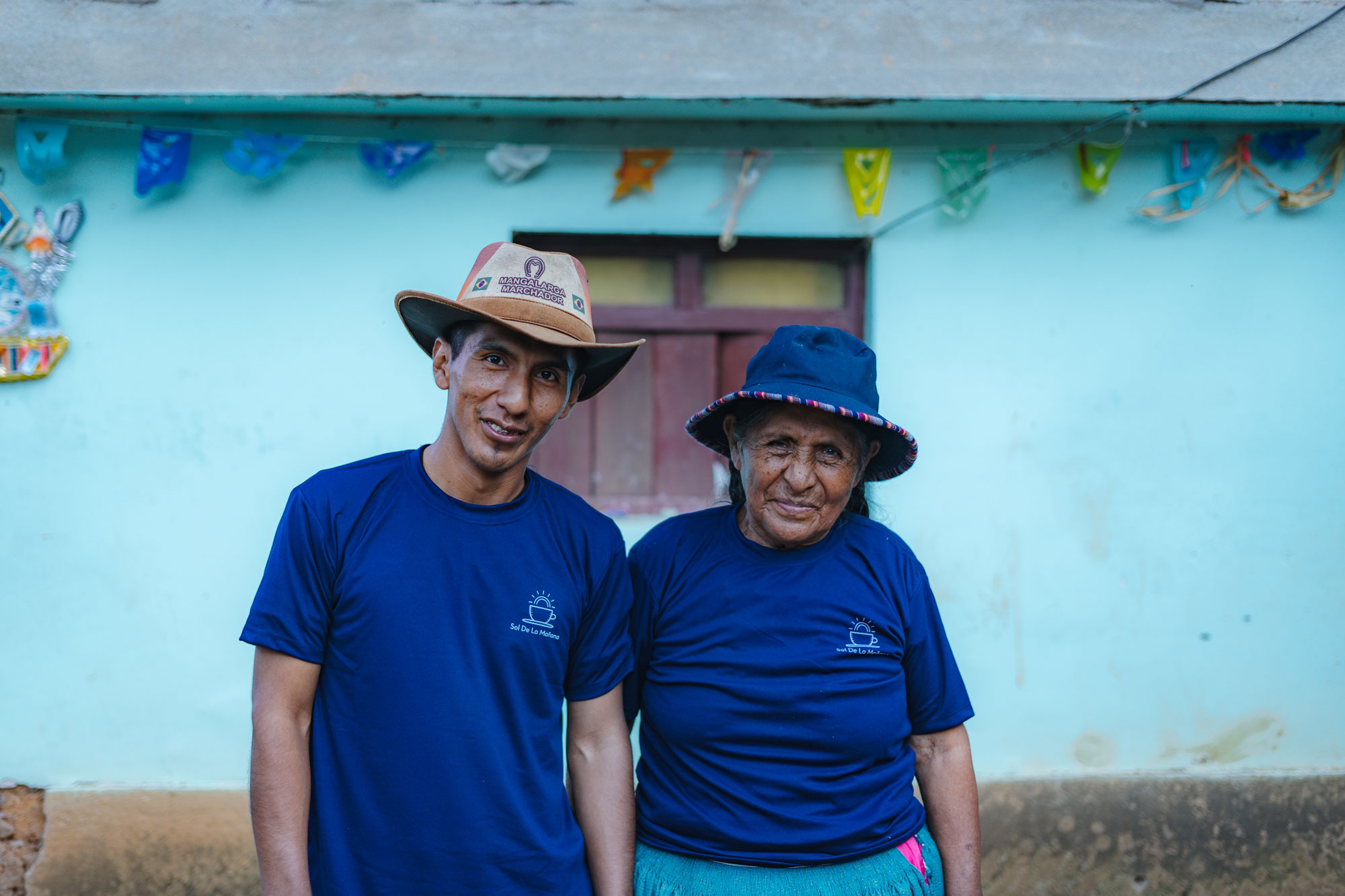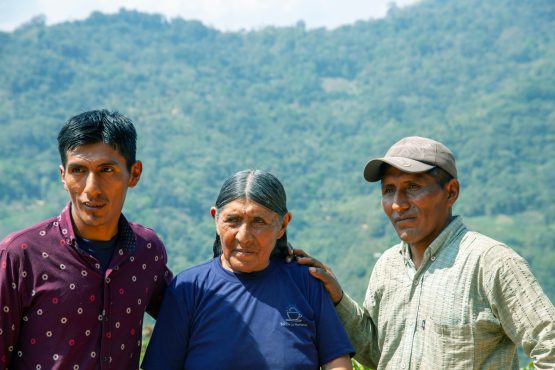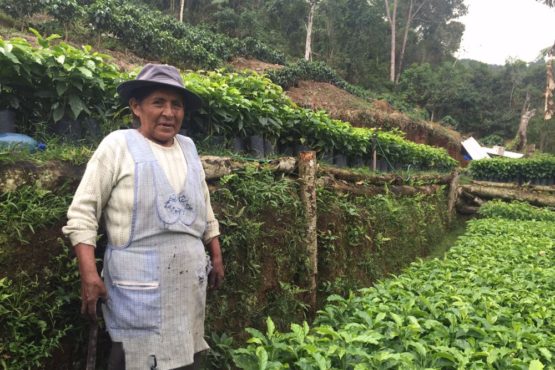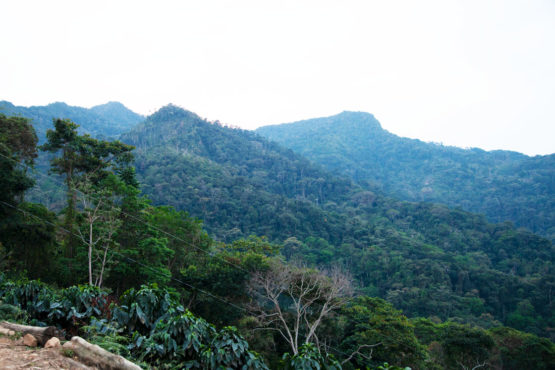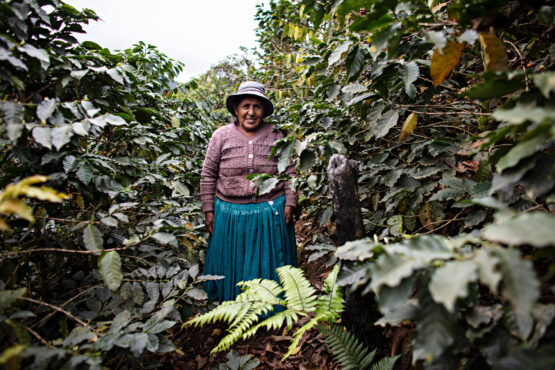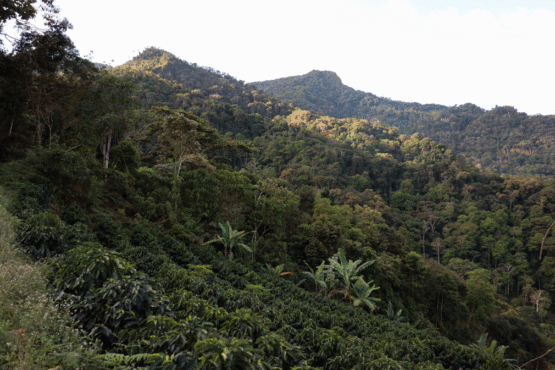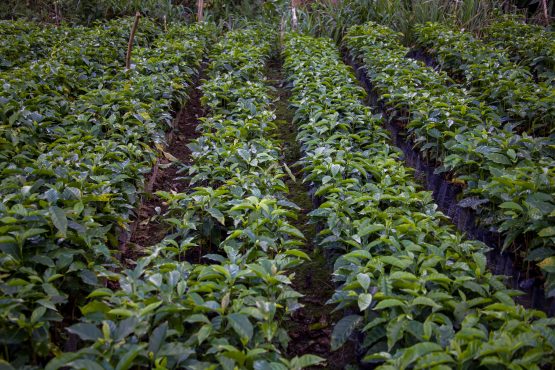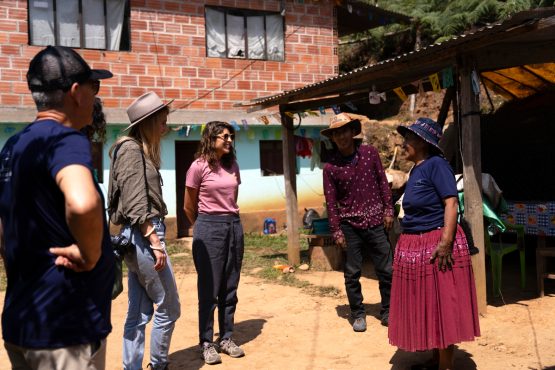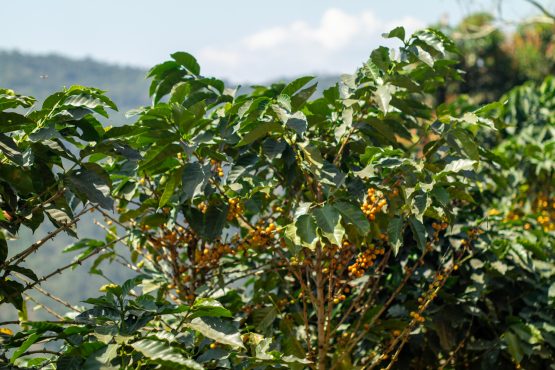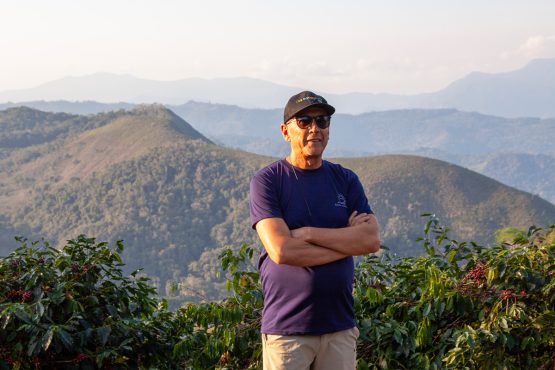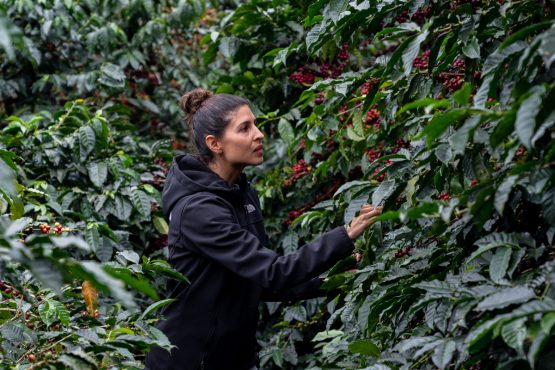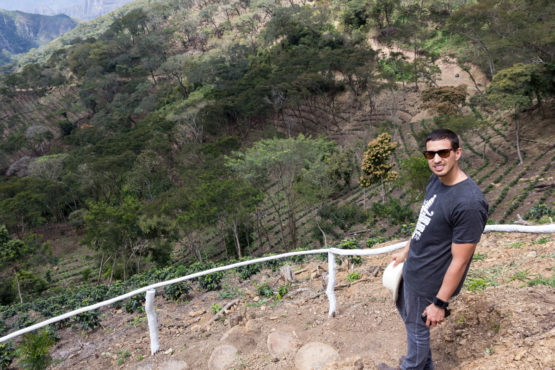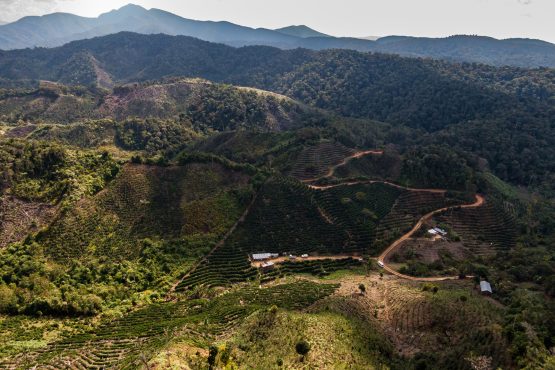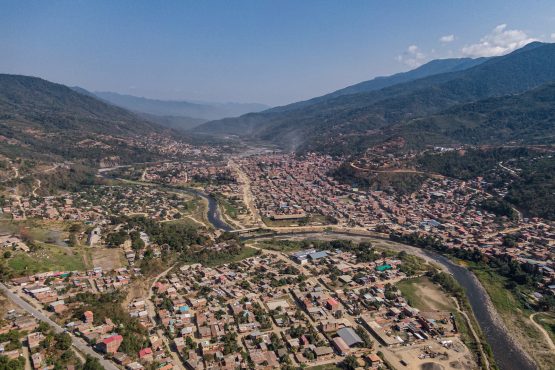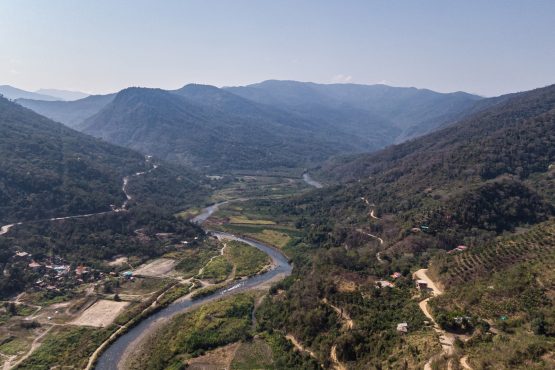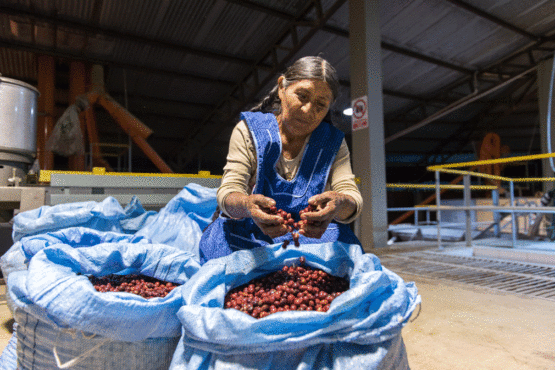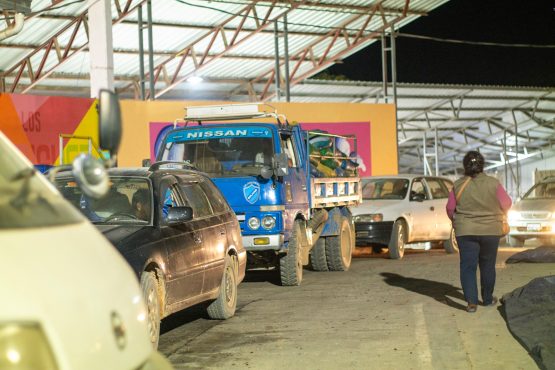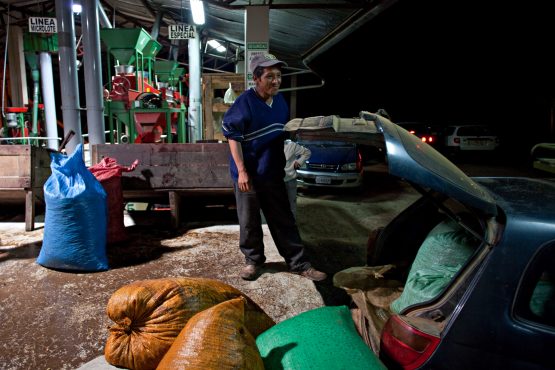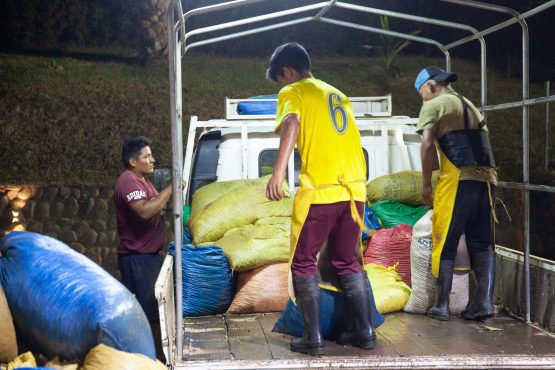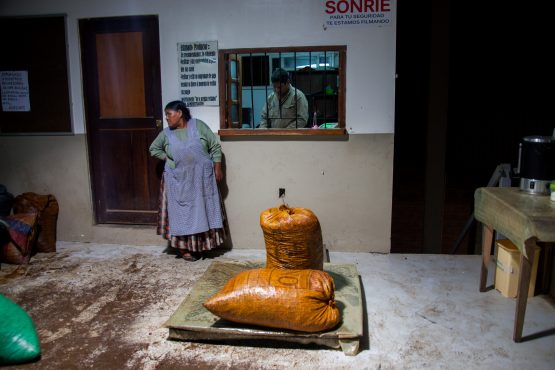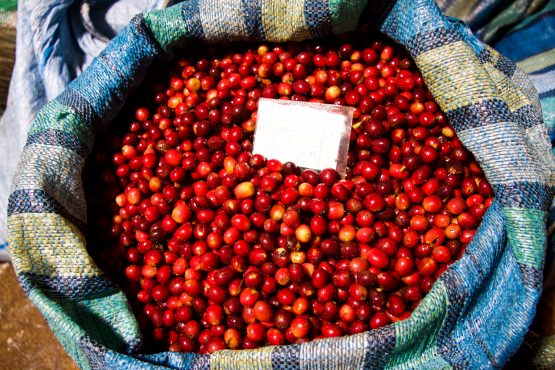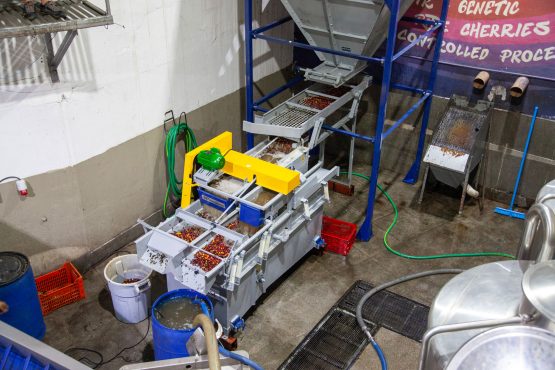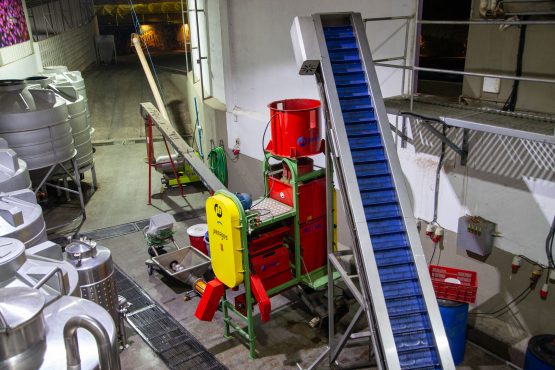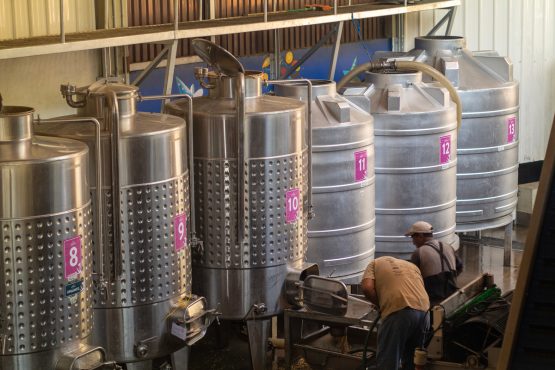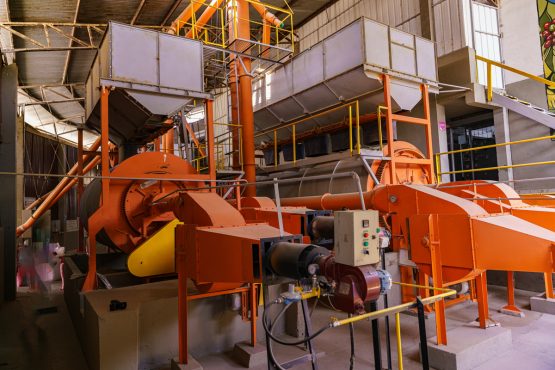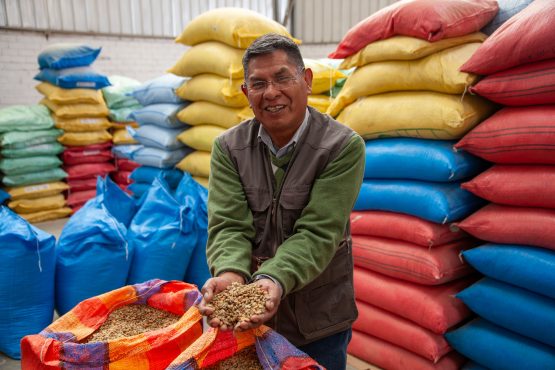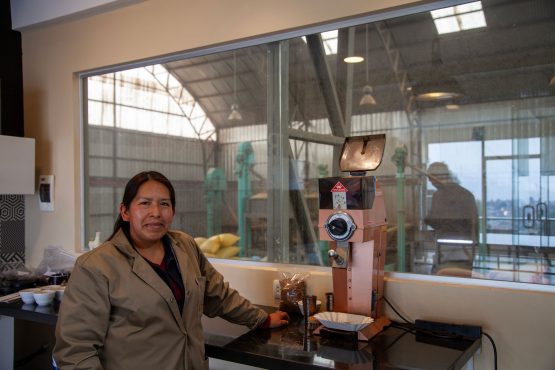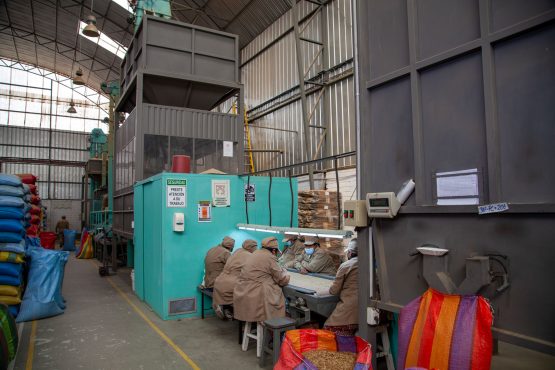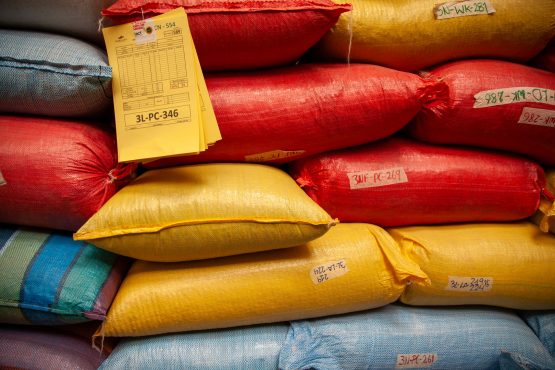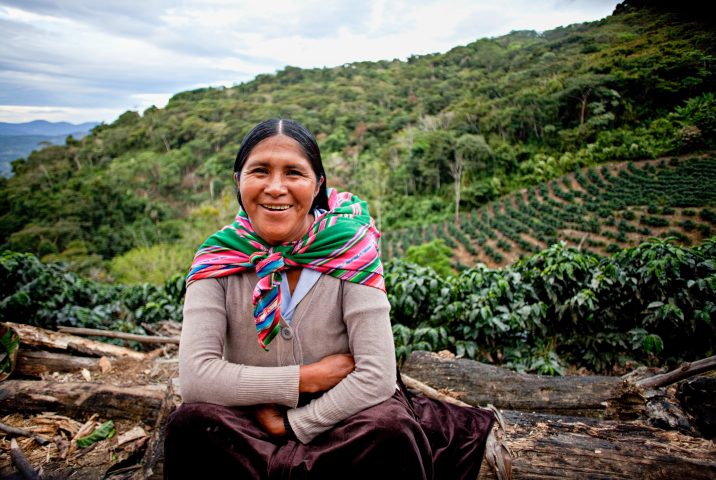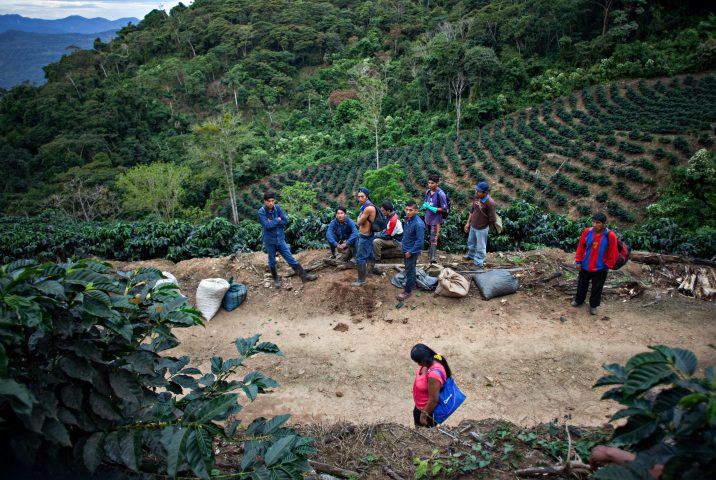Carmelita Washed
Dried apricot, golden sultana and hazelnut nougat, with a creamy body. Great clarity and balance.
This coffee was produced by Carmela Aduviri in Copacabana, a small and remote settlement 180 kilometres from La Paz in the heart of the Caranavi province. This region is the epicentre for specialty coffee production in Bolivia, with incredibly high elevations, rich soil, and wide daily temperature ranges providing the perfect conditions to produce exceptional coffee.
Carmela moved to the region when she was 25, and has spent almost 50 years working in coffee, all while raising eight children. Her farm, Carmelita, is around three hectares in size and sits at an elevation of 1,400–1,550 metres above sea level. Because the region is so steep, the farm is laid out across five ‘floors,’ and contains a number of corridors to make the picking and loading of the cherries easier, and her house sits on one of the only flat surfaces in the property (as shown in the video below). Carmelita is planted with a mix of Caturra and Catuaí variety trees, with a little bit of Java. Carmelita also contains a number of mandarin and lime trees, which the family grow for their own consumption.
Carmela is a member of Agricafe’s Sol de la Mañana program, which is aimed at improving infrastructure and farming practices at farm level to create a more sustainable future for coffee in Bolivia. Since joining in 2014, Carmela has built a vibrant coffee nursery and learned to prune, feed, and manage her coffee plantation to increase her yields. The program has encouraged her invest in her plantation and take a long-term view towards coffee farming. In doing so she has established the foundations for a more sustainable, and ultimately more profitable, future for her family.
Prior to participating in the program Carmela explained that she made around $1000 a year from coffee and was forced to grow coca (which was illegal in Caranavi) to supplement her income. She estimates that she now earns over $20,000 a year from coffee alone. “Coffee has bought our family together. We used to live far apart, but now my sons are at the farm helping me every day. Coffee is a viable crop for us now.” The benefits to the family are undeniable, as most of her children now work in coffee and are part of a generational change the region is going through.
Today, Carmela has retired from farm work, with her sons Elvis and Luis managing the farm together and working hard on improving and producing the best quality coffee they can. Another of her sons, Edwin, has his own farm nearby, and all three of them live on the property with Carmela. Her eldest son Felix also has a farm about an hour’s drive away, and manages the hiring of seasonal staff for the Rodríguez family with his wife Elda.
For a couple of years now, yields at Carmelita have increased to the point that the family no longer has the capacity to process their own cherry, choosing to transport cherry to Agricafe’s Buena Vista mill instead. They’ve also needed the help of seasonal pickers to get through the harvest, getting assistance from around 6 or 7 workers each year. This increase in productivity, and the financial benefits it brings, have made it possible for Carmela to purchase three taxis, which are used to deliver cherry to Buena Vista and for her children to build, or begin building, their own homes at each of their properties.
Head here to learn more about this wonderful program, and here to learn more about the incredible work the Rodríguez family and Agricafe are doing in Bolivia.
ABOUT CARANAVI
The inhabitants of Caranavi first started farming coffee in the 1950s, when a government-led agrarian reform resulted in small parcels of land (of around 10 hectares in size each) being redistributed back to thousands of largely Aymara families. The Aymara are one of Bolivia’s 36 indigenous nations, who originally lived on the highlands of the Altiplano (a vast plateau of the central Andes that stretches from southern Peru to Bolivia and into northern Chile and Argentina). Along with the Quechuas, who lived in the Bolivian lowlands, both groups immigrated to Caranavi to find a better life through agriculture.
The municipality is located in the Yungas ecoregion, one of South America’s most fertile and diverse locations. The region runs along both sides of the Andes Mountains, and is known for the world’s highest lake, called Titicaca. In the Quechua language, Yungas translates to “the warm lands,” in reference to the rainy, yet warm climate experienced in the region
Many families in Caranavi, including the Aduviri family, used to depend on the local market to sell their coffee, which meant low prices and little reliability. Now, as part of the Sol de La Mañana program, they selectively pick their coffee cherries and sell top-grade coffees for substantially higher prices to the Rodríguez family, who process their specialty lots at their wet mill in town.
HOW THIS COFFEE WAS PROCESSED
Carmela’s sons carefully hand-picked this coffee and delivered it to Agricafe’s Buena Vista washing station via taxi. This meticulously run washing station is owned by Agricafe, who painstakingly process each of the exceptional specialty lots they receive separately, allowing for full traceability back to the individual farmer or colony.
Agricafe draw a lot of inspiration from the wine industry in their approach to coffee production, and are always innovating and trialling different processing techniques at Buena Vista. This coffee was processed with experimental techniques, part of the Rodriguez family’s long term strategy to achieve the greatest distinction and diversity in their special lots. Watch the video below to see how Carmela’s coffee was processed:
Evenings at Buena Vista mill are always bustling as arrivals of fresh cherries begin in the late afternoon, after the day’s picking, and continue deep into the night. It is widely known around Caranavi that only perfectly ripe cherries will be accepted by this mill and all lots are inspected on arrival prior to processing. In an arrangement somewhat unique to this mill, many farmers use taxis to deliver coffee, and by 7 pm a long line of taxis forms along the road leading to the mill.
Cherries for this lot were delivered to Agricafe’s state of the art mill Buena Vista in the evening. After being inspected and weighed, the coffee cherry was carefully sorted by weight and disinfected in a machine that the Rodríguez family have dubbed ‘La Maravilla’, or the wonder, due to its efficiency. Following this, the coffee was transported to the mill’s new, water-efficient Penagos mechanical pulper using a conveyor belt. Installed in 2024, both machines use significantly less water than those used previously, and recirculate water several times before it is treated and returned to the local waterways.
For this lot, Buena Vista Manager and fermentation expert Adrián Silva prepared a solution (which the Rodríguez family call coffee ‘mosto’) with a carefully calculated level of the harvested bacteria or yeasts, and added it to the wet parchment as it was placed in sealed stainless steel tanks, catalysing a controlled fermentation.
The tanks were closely monitored throughout the ferment process and the coffee was removed after 48 hours, when the desired fermentation was complete. The wet parchment was then washed with fresh, clean water and carefully machine-dried for 105 hours using a ‘guardiola,’ a horizontal, rotating drum that gets rid of moisture by creating a warm, consistent flow of air around the coffee.
Once the coffee was dry, it was transported to La Paz where it was rested before being milled at Agricafe’s dry mill, La Luna. At this state-of-the-art mill the coffee was first hulled and sorted using machinery, and then by a team of workers who meticulously sorted the coffee by hand under UV and natural light. The mill is one of the cleanest and most impressive we have seen – you can read more about it here.
